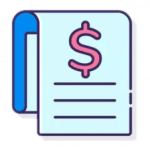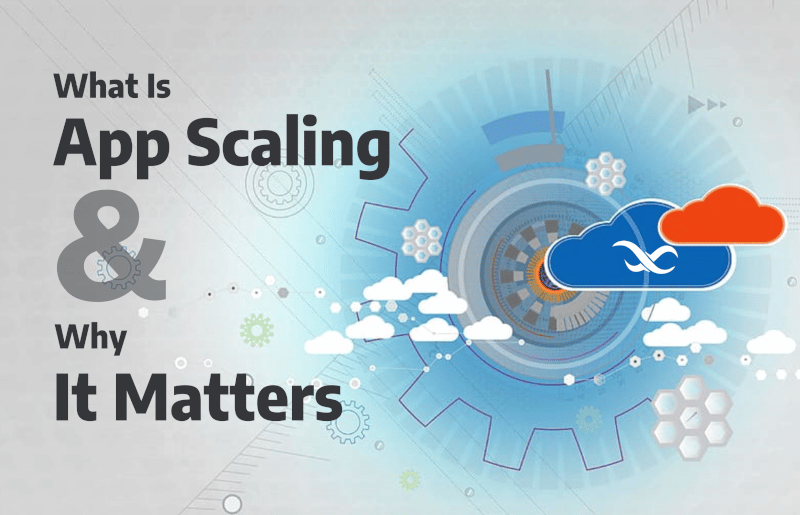What Is App Scalability?
In application development circles, the word scalability is often thrown about without much context or depth of meaning. Let’s talk about what app scalability really means.
Application scalability refers to the capacity of an app to handle growth, especially in handling more users and evolving concurrently with your business needs. Specifically, scalability relates to the app’s backend and database and the servers they are hosted on.
There are many approaches to maximizing scalability, both from an app development standpoint (use of database-level functions, for example) and from an infrastructure standpoint (multi-threading, for example). We discuss the most common approaches in our Beginners Guide to App Scaling.
Quality developers, server architects, and infrastructure service providers (like Backendless) will implement multiple strategies to achieve maximum scalability.
The benefit is that you can safely add more features to scalable applications without worrying about impacts on the app’s performance. The fundamental goal of any app is to provide consistently high functionality and performance levels, whether you have 10 users or 10 million.
A poorly designed or configured app backend cannot achieve this goal. Configuration can be fixed relatively easily on the fly, but poor design often means a full rebuild of your backend – at significant expense.
When scalability is not prioritized early on, the app’s initial popularity will become unsustainable as the number of users increases. Few things chase users from an application faster than poor performance, slow load times, and crashes.
Making Your App Scalable
Ensuring app scalability is primarily the responsibility of your developers. However, for a solo entrepreneur or startup team, you may have few knowledgeable resources available to handle these duties.
It’s important to understand the challenge you are facing, and take note of what’s most important when application scalability is your priority.
While there may be some minor differences, typically the ability to scale your app will not be dependent upon whether or not you are building a mobile or web app.
The approach needed to scale your web application is virtually identical to scaling a mobile app. The main differences are going to be found on the frontend; the way your backend handles database queries and cloud services is likely to be the same.
Selecting the Appropriate Technology

When developing an app, be mindful of the technology you pick for your project. For instance, Node.js is usually the preferred backend technology for easy scalability. It can also be used in both mobile and web development.
You will also need to determine how many servers to utilize. Most cloud hosting services make it easy to increase and decrease your server capacity, but it’s not always straightforward as to how (or why) to do so.
Multiple servers allow for horizontal scaling. Horizontal scaling is a key element for a scalable backend. Horizontal scaling is the use of multiple servers that effectively serve the same purpose.
These servers all share the same database and logic, so they can all perform the same tasks. Load balancers are then used to distribute traffic amongst these servers.
A scalable server infrastructure will utilize load balancers to divert requests from jamming up a single server to instead be distributed among multiple servers.
A load balancer acts as a middle-man between the client (frontend) and servers. Load balancers will direct traffic to the appropriate servers in a way that maximizes server efficiency and reduces load times.
Ultimately, the benefit of these features is to allow your infrastructure to be able to handle as many requests per minute as you need. Some cloud services place caps on the requests per minute allowed, so keep this in mind before you commit.
Scalability Testing

Testing the behavior of an app under different conditions is the most crucial aspect of ensuring app scalability. There is a long list of ways to check an app scaling potential; however, these three are the most important:
Load testing refers to deliberately putting demand on an app and evaluating how it responds. This extensive testing helps give you an idea of how the app will perform when it’s been used by multiple users concurrently.
Performance testing is done to observe an app’s performance (including stability, responsiveness, reliability, and speed) under a specific workload.
Scalability testing is done to determine the extent to which an app can be scaled up. Comprehensive scalability testing is a form of performance testing done to know how the app will grow in proportion to increasing requirements and demand. The main purpose of scalability testing is to measure the capability of an application to scale up or scale out with respect to its non-functional capability.
Why Does Scalability Matter?
There are numerous reasons to make application scalability a priority. Below are some of the top reasons for developing a scalable app:
Better User Experience

As we mentioned, a low-performing app cannot provide a good user experience. When users don’t have a good experience using your app, they will most likely not keep trying. Instead, they will abandon it and possibly uninstall it from their devices altogether.
They then migrate to another application that provides similar features and functions correctly. Even worse, those users will be left with a bad taste in their mouth, making it less likely they will try your product again when you’ve managed to fix your issues.
Scalability can be impacted by both frontend and backend development decisions you make. It’s important that you not make your app too dependent on front-end logic – which can slow down based on the user’s device – but also that you give your backend enough server power to handle the demands your app puts on it.
Long-term success is dependent on your business being competitive. Therefore, ensuring app scalability offers a better user experience and improves the prospect of long-term success for your business.
Saves Money

Ensuring your app is scalable upfront saves you a lot of money in the long run.
For startups, it’s common to start with an MVP, or minimum viable product. That is, a product with just the essential features that you introduce to a limited number of users, gather feedback and improve upon that. By doing this, you can save development time and resources by collecting valuable user feedback before expanding your offering.
Once you’ve gathered that invaluable data, however, it’s time to think about scaling. From that point, having validated your concept, your product’s growth is based on reliable data and you will be providing a feature-packed product that you know your customers want.
You need to be prepared for the growth that comes with hitting that sweet spot of product-market fit. If you are still using the same inexpensive infrastructure that you built your MVP on, you may hit performance issues quickly and lose all momentum you’ve worked so hard to generate.
With any published application (i.e. not built for internal business purposes), losing users means losing money.
Application Stability

This is one of the most important benefits. It is also very strongly linked to a better user experience. When you build a scalable app, you are sure that all performance issues associated with a surge in users are accounted for. This implies that the app’s performance will remain flawless whenever your app experiences high user traffic (during seasonal events, marketing campaigns, special discounts offer, etc.).
Feature Customization

Scalable applications allow you to play around with your app as you see fit. You can make new adjustments according to your business goals and users’ feedback. App scalability gives room to explore creative possibilities without worrying about overburdening your infrastructure.
Provide Better App Performance

Making your app scalable from the start will help ensure that it always works the way that you intend it to, whether there are five users or 5 million. Consider scalability upfront during the app development phase if you anticipate a large user base or massive datasets. You can be sure to avoid a scaling issue in the future.
Handle Usage Surges

For most apps, the number of users (or the amount of data users are accessing) will fluctuate throughout the day, week, month, etc. For instance, during certain events (such as holidays, special sales, Black Friday, etc.), your app may experience a noteworthy increase in users.
Poor infrastructure will struggle to deal with these fluctuations when they occur. Although, by that point, it’s usually too late and costly to start making adjustments in real-time.
If your app is not scalable enough to handle these fluctuations, you may get in trouble. This could result in negative reviews, revenue loss, loss of users, and customer complaints.
One significant benefit of utilizing serverless infrastructure to handle scaling is the ability to “turn on and off” servers. That is, with most serverless providers, you are only charged for your processing power consumption.
Thus, you can immediately and smoothly scale up when needed, and scale back down after the surge ends. When you own your own servers, you have little choice but to overcompensate during slow times, or risk being underprepared during surges.
Positive Reviews and User Feedback

Positive feedback is vital to developing a profitable, successful, and perfect application. More positive reviews usually result in more attention to your app. Creating a high-performing, highly functional app is sure to get you genuine positive reviews.
Placing importance on scalability ensures that your app always functions well and offers an optimal user experience. This will only lead to more positive reviews and recommendations.
Make More Money

Of course, you earn more money when your app gets more downloads and users. As your company grows, it becomes easier to keep it afloat when it has more money, whether that money comes from users themselves, enterprise customers, ads, or venture capital.
Moving forward, this will also provide you with more opportunities to invest in the app. You will find it easy to pay for maintenance and upgrades. Thus, ensuring a good user experience over time.
Long-Term Growth and Success

High revenue, positive ratings, recommendations, and good user experiences result in your business’s long-term success and growth. Ensure that you are playing the long-term game to avoid failure.
Therefore, invest in quality app development and scalability early on to have a high-performing, dependable, and great product that people would love to download and use.
No-Code App Scalability
From a no-code perspective, it can be easy to see a tool like Airtable or Bubble’s built-in backend as perfectly adequate, but these tools are not built to scale.
Even an MVP-level product will quickly reach the limitations on your database, start to see performance deteriorate, and see the pricing skyrocket.
Backendless, on the other hand, is built to scale.
When your growth reaches a point where the Backendless Cloud app service plan becomes constricting or too costly, you have the option to transition to our limitless products, Backendless Pro and Managed Backendless. These can be installed on any servers you want, giving you complete control over server capability and, in turn, scalability.
The Infinitely Scalable Backend

Backendless uniquely provides an infinitely scalable backend, database, and server infrastructure to power your mobile or web application. Without requiring you to write any code, Backendless takes care of coding and managing the entire server infrastructure behind your app. With no servers to maintain, your development time is now completely focused on providing business value to your customers.
Additionally, with Backendless, you can forget about the headache of scaling your backend as your app grows from a few users to millions of mobile and web users. Backendless automatically scales on-demand with no service interruptions.
Backendless provides an infinitely scalable backend that works for all mobile and web application projects – regardless of the complexity or requirements.
Conclusion
Scalability is critical for any application seeking to support a large userbase or work with big data. At Backendless, we caution users to take app scalability for granted at your own peril. When you plan and execute scaling plans early on during the app development phase, however, it can be a game-changer for the success of your app.
If you want to capture users’ attention in a competitive market, then do not take scalability lightly. Consider it a necessary factor in your application’s development journey.
A scalable app means greater security, reliability, flexibility, and the potential to add new functionality and features. When starting your software project, ensure that you have scalability in the back of your mind – if not front of mind! – to gain a product that grows simultaneously with your business.












